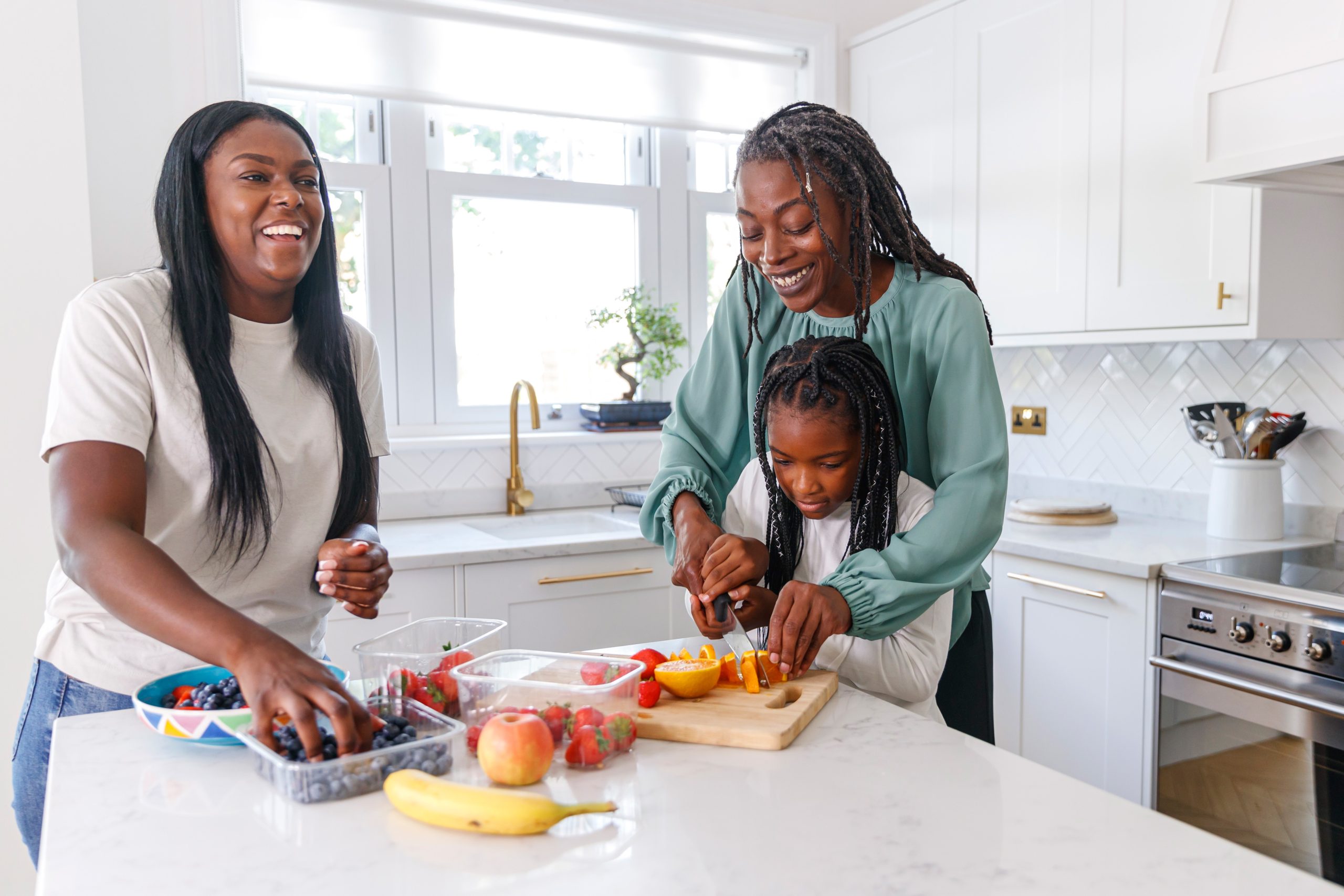As parents, we are constantly looking for ways to keep our children entertained, while also providing them with valuable learning experiences. One activity that ticks both of these boxes is cooking with kids. Not only is it a fun and enjoyable way to spend time together as a family, but it also teaches our little ones important life skills and encourages healthy eating habits. So, gather your aprons and spatulas, because today we’re diving into the world of cooking with kids – the ultimate fun and educational kitchen adventure!
First and foremost, cooking with kids fosters a sense of independence and responsibility. By actively participating in meal preparation, children learn how to follow instructions, measure ingredients, and manage their time effectively. As they pour, stir, and mix, they gain a deeper understanding of cause and effect, realizing that certain actions lead to a specific outcome. This hands-on experience not only boosts their confidence but also enhances their problem-solving skills.
Moreover, cooking with kids introduces them to the world of mathematics and science in an exciting way. Measuring ingredients requires them to use basic math skills, such as counting and fractions. They learn about different measurements, conversions, and the importance of precise measurements for successful outcomes. In addition, children can witness various scientific phenomena while cooking. For example, they can observe how ingredients transform through processes like melting, boiling, or baking, helping them make connections between actions and their consequences.
One of the best aspects of cooking with kids is the opportunity to expand their vocabulary and language skills. As they read through recipes, identify different ingredients, and describe flavors and textures, their vocabulary grows naturally. Using descriptive words like ‘crispy,’ ‘spicy,’ or ‘creamy’ helps them develop more sophisticated language skills. Additionally, explaining the steps of a recipe or discussing the origins of certain dishes allows for meaningful conversations about culture, history, and traditions.
Cooking also provides a fantastic platform to teach children about nutrition and healthy eating. By involving them in meal planning and ingredient selection, kids learn to make choices based on nutritional value and balanced meals. They become aware of the importance of eating fruits, vegetables, and whole grains while minimizing the consumption of processed foods. Engaging children in these discussions allows them to develop a positive relationship with food and empowers them to make healthier choices throughout their lives.
Furthermore, cooking with kids nurtures creativity and imagination. While following a recipe, children can experiment with flavors, spices, and personal preferences, giving them a sense of ownership over their creations. They can see firsthand how substituting ingredients or adding their own twist can produce exciting and unique outcomes. Sharing their culinary masterpieces with family and friends boosts their self-esteem and encourages them to think outside the box.
Cooking with kids is not limited to just the kitchen; it extends beyond to a wide range of subjects and skills. For instance, reading a recipe aloud allows children to practice their reading skills and comprehension. They learn to follow step-by-step instructions, enhancing their ability to understand and execute tasks. Moreover, cooking involves teamwork, as children work alongside their parents or siblings. This cooperation fosters social skills, teaches patience, and instills the importance of sharing responsibilities.
Aside from the educational benefits, cooking with kids creates beautiful memories and strengthens family bonds. It provides an opportunity for children to spend quality time with their parents, siblings, or even grandparents. As they work together towards a common goal, families can engage in meaningful conversations, share stories, and simply enjoy each other’s company. These shared experiences encourage open communication and create a sense of belonging within the family unit.
Before diving headfirst into a cooking adventure with your little ones, it’s important to consider a few tips to ensure a smooth and enjoyable experience. Firstly, choose age-appropriate recipes and tasks that suit your child’s abilities. Younger children may enjoy activities like washing fruits and vegetables, stirring ingredients, or decorating finished dishes, while older ones can handle more complex tasks like chopping, sautéing, or baking. Secondly, make sure to prioritize safety by teaching children about hot surfaces, sharp utensils, and proper hand washing techniques. Finally, embrace the mess! Cooking can get messy, and that’s okay. Encourage your children to take ownership of their culinary creations, even if it means a bit of extra clean-up.
In conclusion, cooking with kids is a wonderful way to incorporate fun, education, and life skills into everyday life. From fostering independence and responsibility to expanding vocabulary and promoting healthy eating habits, this kitchen adventure has a plethora of benefits. So, next time you find yourself wondering what to do with your children, gather them in the kitchen, put on those aprons, and embark on a cooking journey filled with love, laughter, and lifelong memories.
